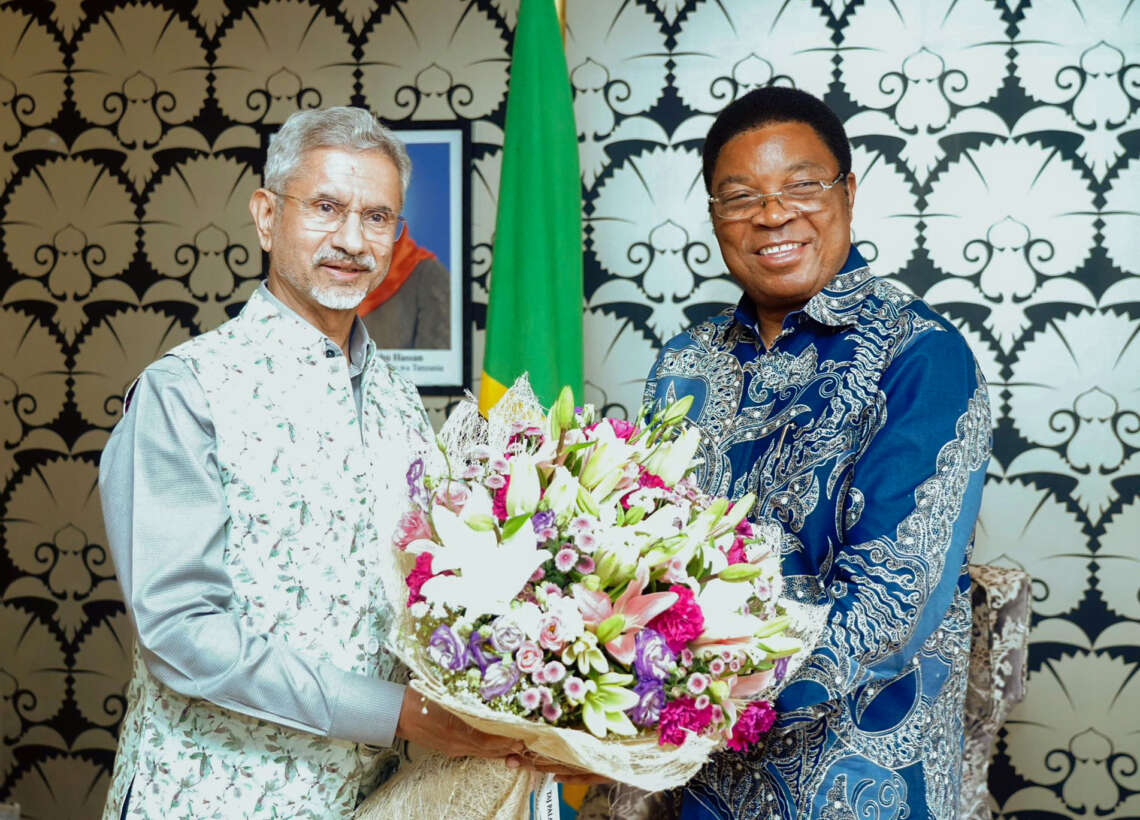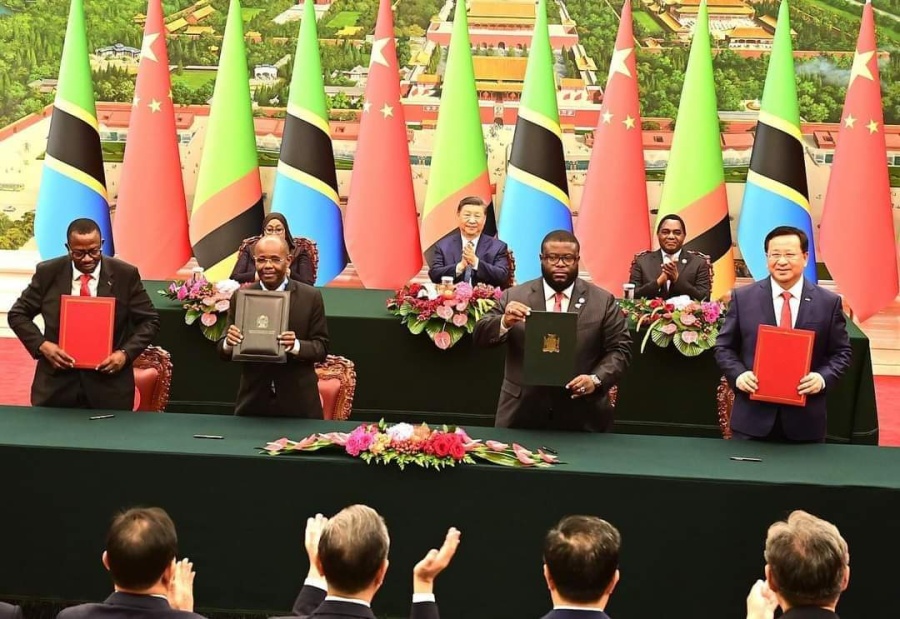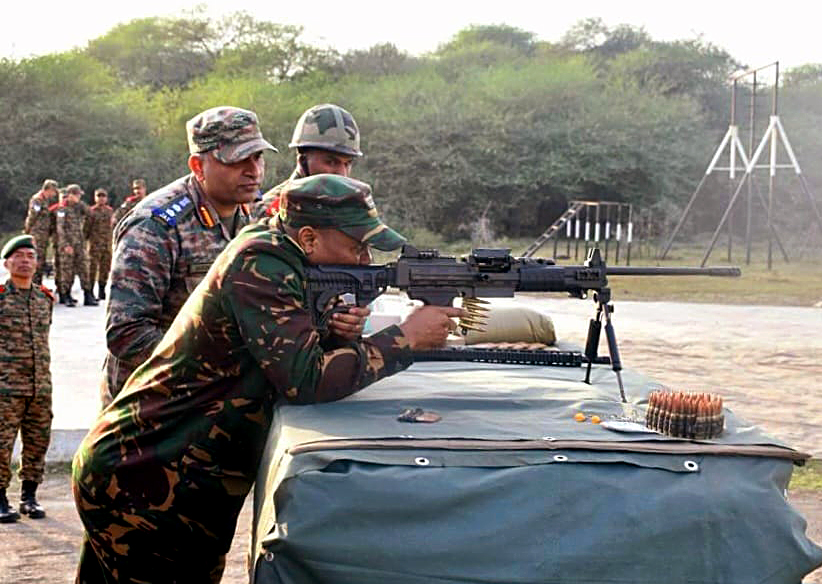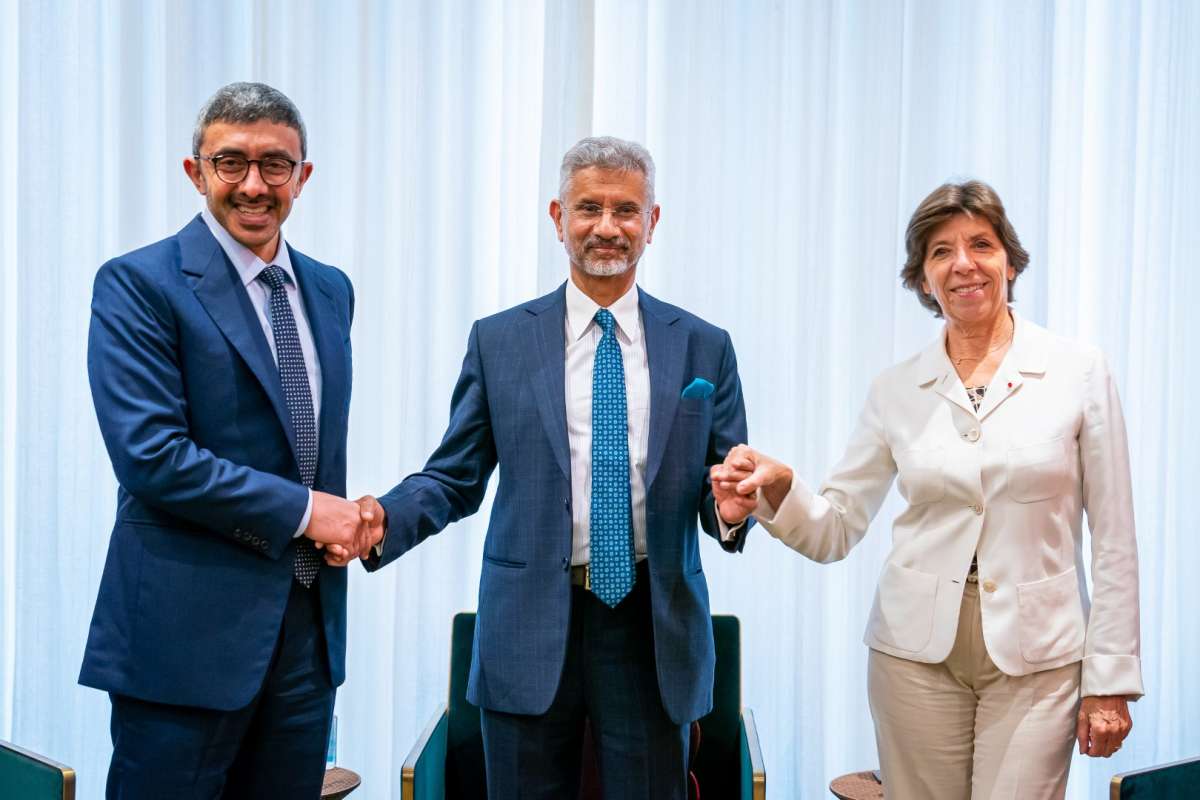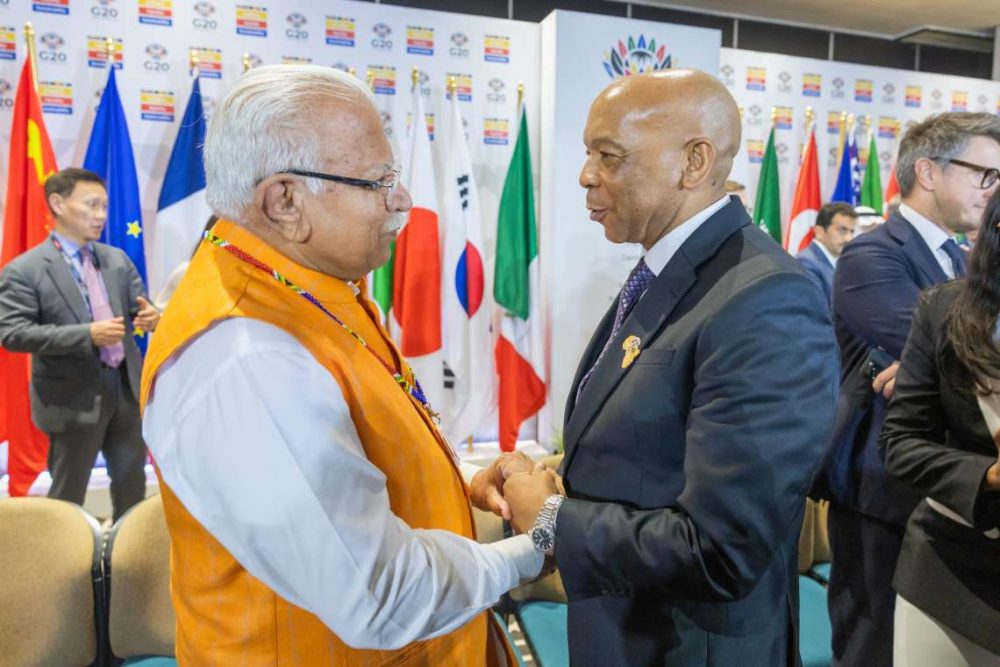A deadly insurgency broke out in northern Mozambique near the Tanzanian border five years ago, killing thousands and displacing hundreds of thousands…reports Asian Lite News
The leaders of Mozambique and Tanzania have signed defense and security agreements aimed at fighting terrorism and crime along their shared border.
No details were released on the content of the agreements signed during a visit to Maputo by Tanzanian President Samia Suluhu Hassan.
A deadly insurgency broke out in northern Mozambique near the Tanzanian border five years ago, killing thousands and displacing hundreds of thousands.
However, life is “gradually returning to normal” after thousands of foreign troops from several African countries were deployed more than a year ago to quell the unrest, Mozambican President Filipe Nyusi said.
“The enemy is now operating in small groups trying to come down to the southern districts,” Nyusi said in their talks.
President Hassan said that because the two neighbors share a “very long” border, “we need a good security system that allows us to protect our border.”
“We have seen … cross-border crimes (and) terrorism,” he said.
Nyusi visited the recovered port of Mocimboa da Praia, a former de facto jihadist headquarters.
In October 2017, about 30 gunmen launched a dawn raid on three police stations in Mocimboa da Praia, marking the beginning of the insurgency.
Since then, more than 4,258 people have been killed, according to ACLED, and 820,000 have fled their homes.
Mozambican forces, backed by Rwandan troops, claimed in August 2021 to have driven out the militants occupying the port.
The insurgents terrorising Mozambique’s gas-rich Cabo Delgado province have in recent months intensified a violent campaign to establish an Islamic caliphate, which has now spilled north into Tanzania.
“We will have joint operations (and) exchange information in our endeavour to end terrorism in our border areas,” said Mozambique’s police chief Bernardino Rafael.
“I believe with this partnership… we (will be) able to finish the terrorists,” he added.
As part of the deal, more than 500 suspected militants arrested in Tanzania will be extradited to Mozambique, according to national broadcaster TVM.
A shadowy Islamist group has wreaked havoc in northern Mozambique since 2017, killing hundreds of people and displacing thousands.
Locally they are known as Al-Shabab, although they have no known links to the ruthless jihadist group of that name operating in Somalia.
Their attacks have increasingly been claimed by the Islamic State Central Africa Province (ISCAP), affiliated with Daesh.
International conflict data provider ACLED has recorded more than 2,000 fatalities from the conflict, while Mozambique’s Prime Minister Carlos Agostinho last week said at least 500,000 had fled their homes because of the violence.
Shared ties
Tanzania and Mozambique share not only a border but strong family, economic, cultural, and historical ties, which cement the bond between the two countries. Tanzania played a key role in Mozambique’s struggle for independence. In fact, the country was a base for liberation movement activists. The Mozambique Liberation Front (FRELIMO) was among those movements that benefited extensively from Tanzania’s support for the independence of the southern African states.
Moreover, the Macondé in Cabo Delgado have traditional links with Makondé in Tanzania. Mwani is a similar language to Swahili and Mwani speakers have traditional links to Zanzibar and coastal cities further north. The Makua and Yao are two large Bantu tribes of Southern Tanzania and northern Mozambique. Tanzania’s Mtwara Region and Cabo Delgado are inextricably linked through ties of family, language, faith, and economy11. An effectively open border is straddled by families rooted on either side. A common language, Swahili, binds communities, while shared faith too ignores borders13. Those elements made it easier for the insurgents on the Mozambican side to interact with their counterparts in Tanzania and vice versa, and to conduct small-scale attacks. It has also created an easy entrance for Tanzanians and other foreign fighters who take advantage of the lapse border security facilitated by a sense of brotherhood between the people of the two countries easily cross to Mozambique to join up insurrection in Cabo Delgado.
ALSO READ-Algeria to increase gas supply to Italy



